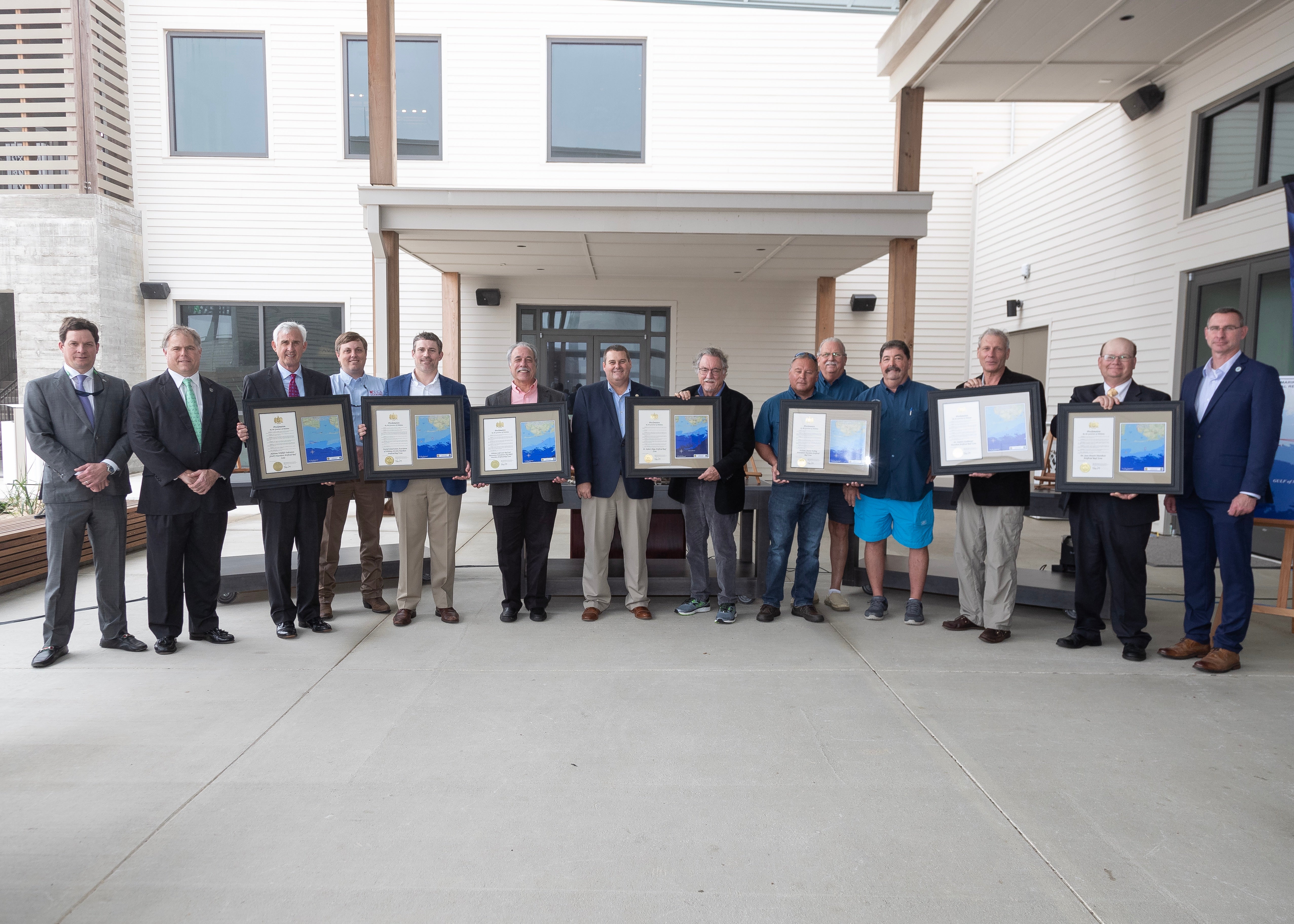Nation’s largest artificial reef program expands with eight new zones
On February 22, 2019, the Alabama Department of Conservation and Natural Resources (ADCNR) held a naming ceremony for eight new artificial reef zones in waters off the coast of Alabama. The ceremony took place at the Dunes Terrace at the Gulf State Park Lodge in Gulf Shores, Ala.
During the ceremony the artificial reef zones were named in honor of individuals and organizations that have made substantial contributions to the establishment and continued development of the largest artificial reef program in the U.S.
“It is an honor for us to recognize these individuals and organizations that have worked diligently with the Department of Conservation’s Marine Resources Division over many years to make the artificial reef system off the coast of Alabama the largest in the country,” said Chris Blankenship, ADCNR Commissioner.
The eight artificial reef zones were named for the following individuals and organizations:
Alabama Wildlife Federation
The Alabama Wildlife Federation has been a constant advocate for outdoor programs in Alabama and was instrumental in developing the Alabama Artificial Reef Development Plan. The group has also helped secure $35 million in funding for inshore and offshore artificial reef zones.
Alabama Charter Fishing Association
The Alabama Charter Fishing Association has worked with the State of Alabama for more than 60 years deploying artificial reefs and advertising the benefits of the artificial reef zone. They have provided opportunities for thousands of people from across the country and the world to fish off Alabama’s coast.
Coastal Conservation Association of Alabama
The Coastal Conservation Association of Alabama has partnered with the State to enhance law enforcement and research programs. The group has also provided financial and logistical support for both inshore and offshore artificial reef programs.
National Fish and Wildlife Foundation
The National Fish and Wildlife Foundation has provided Alabama with funding for conservation research since 1984. In recent years, the group has provided approximately $34 million in support of projects in Alabama including the expansion and enhancement of the State’s artificial reef program.
Alabama Gulf Coast Reef and Restoration Foundation
The Alabama Gulf Coast Reef and Restoration Foundation was created solely to support Alabama’s artificial reef program with funding, monitoring and public education. The foundation has worked closely with divers to monitor and clean artificial reefs of debris and remove invasive species. The foundation has also provided funding for the deployment of several ships to serve as artificial reefs and dive locations such as the famous “Lulu.”
Dr. Robert Shipp
For more than 40 years, Dr. Robert Shipp has dedicated his life to conducting fisheries research in the Gulf of Mexico and the development of the Alabama Artificial Reef Program. He is recognized as the leading authority on red snapper and has served on the Gulf of Mexico Fishery Management Council for over 20 years.
Dr. Sean Powers
Dr. Sean Powers is a senior scientist with the University of South Alabama and the Dauphin Island Sea Lab. He conducts research on the ecology of marine invertebrates that are important to the Gulf of Mexico. His ongoing research on the abundance of reef fish in the Alabama Artificial Reef Zone assists both state and federal fisheries management programs.
Dr. Stephen Szedlmayer
Dr. Stephen Szedlmayer is a professor at Auburn University who conducts research on juvenile snapper habitats as well as the value of structures such as oil and gas platforms to fisheries in the Gulf of Mexico.
The Alabama Marine Resources Division (MRD) manages ADCNR’s artificial reef program. MRD has utilized a variety of different materials over the decades to create ecologically productive reefs, which have been constructed in various locations throughout the state’s inshore waters and up to 55 nautical miles offshore. From barnacles and corals to flounder and red snapper, a diversity of marine life thrives among Alabama’s artificial reef zones.
For more information about Alabama’s artificial reef program including GPS coordinates, visit www.outdooralabama.com/saltwater-fishing/artificial-reefs.
The Alabama Department of Conservation and Natural Resources promotes wise stewardship, management and enjoyment of Alabama’s natural resources through four divisions: Marine Resources, State Lands, State Parks, and Wildlife and Freshwater Fisheries. To learn more about ADCNR, visit www.outdooralabama.com.
###







